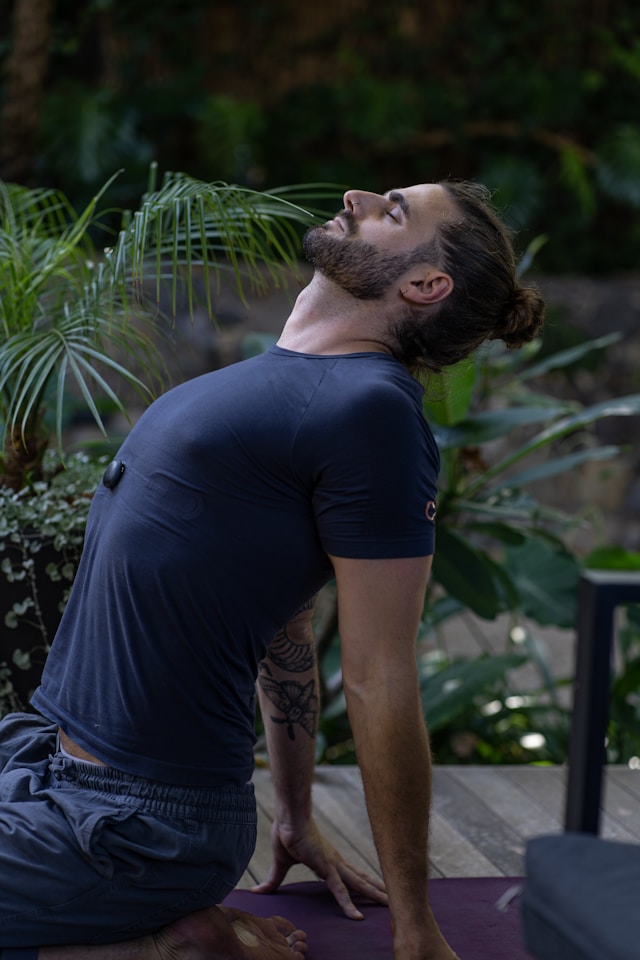Welcome to the Stress Management 8 Weeks program, a structured, immersive journey designed to equip you with effective tools for stress management in a supportive, community-based setting. Throughout this eight-week course, you’ll connect with a network of like-minded individuals, all working together to cultivate a balanced, peaceful life while learning strategies for improved mental health, emotional resilience, and self-care. Together, we will help you take control of your stress and lower its effect on your life, reducing its toll on your body and mind.
Program Overview Technique
Our approach integrates expert guidance with the dynamic power of group interaction to address stress comprehensively. Each week focuses on a specific element of stress level relief and normal personal growth, providing practical tools, evidence-based techniques, and the supportive backing of your peers to create lasting changes. We aim to reduce the chronic stress and anxiety that can negatively affect your mood and brain function, improving your overall well-being.
What You’ll Learn:
Week 1: Introduction to Stress Management
Understand stress psychology and its various impacts on your physical health, mental well-being, and overall quality of life. Your stress response triggers specific hormones that affect your heart rate and blood pressure. By understanding how your body responds to stress, you’ll be better equipped to cope with these natural responses to reduce their negative impact.
Establish clear, actionable goals for managing stress and your self-improvement journey. By setting achievable goals, you will see a positive change in your ability to manage stress.
Week 2: Identifying Stressors
Recognize personal stressors, including both external triggers and internal patterns, that contribute to anxiety, anxious thoughts, or burnout. Learn to respond effectively and cope with stress by identifying these triggers early. Engage in collaborative discussions to share tips for managing stress and learn from the group’s diverse experiences.
Discover how to reduce the impact of stressors by changing your reaction patterns.
Week 3: Mindfulness and Relaxation Techniques
Dive into mindfulness practices such as meditation, progressive muscle relaxation, and guided visualization that reduce chronic stress and promote emotional regulation. These practices can help to lower your heart rate, blood pressure, and stress hormones.
Learn relaxation methods, including deep breathing exercises and body scanning, to integrate into your daily routine and reduce stress. These exercises have the benefit of improving your overall mood and mental clarity. With consistent practice, these tools can have a positive impact on your mental well-being.
Week 4: Time Management Strategies
Explore time management skills that prevent overwhelm and optimize productivity, reducing work-related stress. These techniques can help cope with the fight-or-flight reaction triggered by time pressures.
Share personal tips for goal setting, prioritization, and work-life balance with group members. By adopting these strategies, you can stay focused and calm, lowering stress in both personal and professional settings.


Week 5: Emotional Awareness and Resilience
Develop emotional intelligence and self-awareness to recognize and manage your feelings more effectively. You’ll gain the ability to recognize how stressors influence your mood and take steps to respond appropriately.
Engage in resilience-building activities that empower you to cope with challenges and cultivate emotional stability. This is a vital part of building emotional resilience and improving your ability to stay calm under pressure.
Week 6: Building Healthy Relationships
Discover the importance of social connections and support networks in stress management. Healthy relationships can boost your emotional well-being and help you cope with stressful situations.
Learn to set healthy boundaries in personal and professional relationships to foster mental well-being. These boundaries will help reduce stress and prevent burnout.
Week 7: Coping Skills for Stressful Situations
Master practical coping mechanisms for managing high-pressure situations, whether in personal life coaching programs or work social settings.
Participate in role-playing scenarios to practice adaptive responses to stressful environments. The goal is to change your reaction to stressful events, enabling you to handle them in a calm and controlled manner.
Week 8: Creating Your Stress Management Plan
Reflect on your journey, integrating the strategies and tools you’ve accumulated to form a comprehensive, personalized Anger management plan. This plan will act as a roadmap for ongoing mental resilience and well-being.
Set long-term goals for sustaining your mental health professional and well-being, improving your sleep, and reducing stress in the future. Take actionable steps to maintain the progress you’ve made during the program.

Supportive Group Environment
The program emphasizes a community-focused approach to stress reduction. Engaging in group coaching allows you to benefit from shared stories, mutual encouragement, and accountability within a safe, inclusive environment. Together, you’ll have a platform to confront challenges, celebrate progress, and embrace self-growth as a collective. Through the support of your peers, you will connect with others who are working towards similar goals and create lasting bonds.
Join Us for a Transformative Experience
Ready to embrace effective stress management and enhance your quality of life? The Stress Management 8 Weeks program is a unique and helpful opportunity to connect with others, learn proven techniques, and gain signals that will help you manage stress sustainably and health problems. Sign up today and start your mission toward a calmer, more fulfilling life with greater mental clarity, self-confidence, and emotional well-being.


